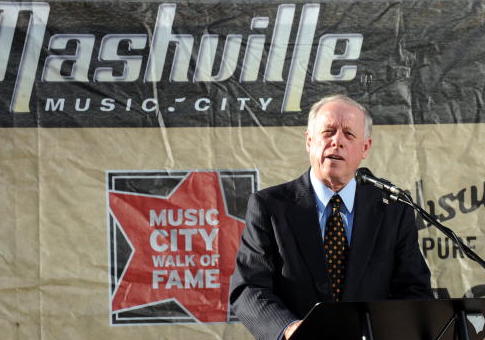Former Tennessee Governor Phil Bredesen (D.,) has touted a health insurance program created during his tenure called Cover Tennessee (CoverTN) on the campaign trail, but a review of media reports from his last term shows that progressive groups were among the most frequent critics of the bare-bones plan.
Bredesen, currently the Democrats' nominee for the Senate seat being vacated by Republican Bob Corker, created the program as a reaction to the woes of TennCare, a state-based Medicaid system whose financial difficulties grew so deep about 190,000 people were either dropped from the rolls or faced reduced coverage in 2005.
"Some of you may remember that when I was governor, I did this CoverTN thing, Cover Tennessee project, which was a relatively low benefit plan designed for small businesses," Bredesen said during a candidate forum in August.
"It actually worked very well. We had a lot of people in it and it turned out to be good insurance. And I actually got some national attention at some point, as, you know, one of the ways which you help to fill in the cracks of the system."
The most vocal critics of the program were progressive health care advocates such as Tony Garr, who represented the Tennessee Health Care Campaign through most of the last years of Bredesen's term.
"We call that pretend insurance" Garr was quoted as saying in the Greater Knoxville Business Journal in 2009. The article noted that CoverTN had "an overall cap of $25,000 in benefit payments for a year, with a hospital maximum of $15,000.
Months before that, another group, Families USA, released a report calling the program "Swiss cheese" coverage.
"If you just need to go to the doctor three or four times a year to get your blood pressure checked and medicine adjusted, then that's a clear step up" Chattanooga oncologist B.W. Ruffner was quoted by the Chattanooga Times Free Press. "But small employers and underinformed employees could think they were signing up for more than they're actually getting."
Bredesen responded to that particular report by saying he never promised that the program was a model for universal health care.
"It certainly does not replace the kind of universal comprehensive insurance I hope our country has at some point in time. But … to have some health insurance rather than none, I think it's perfectly appropriate."
The Bredesen team also highlighted that customers with CoverTN usually got negotiated rates for care, arguing that the program would still save customers money even if they hit their benefit maximums.
In the alt-weekly Nashville Scene, the same theme reappeared, when an opinion writer summed up Bredesen's public service with an article titled, "As governor, Phil Bredesen got absurdly high marks for C-grade work":
In some of the interviews he's been giving in recent weeks as his term winds down, Bredesen touts the Cover Tennessee program he hatched in 2006, a year after cutting all of those folks from the TennCare roll. Bredesen pitched CoverTN as a route to "making affordable health insurance available to as many Tennesseans as possible" without wasting resources on "the extras that drive up the cost of health care." Apparently those "extras" include actual health insurance, to judge by CoverTN's draconian coverage limits and lack of protection against catastrophic health expenses. It's no surprise that CoverTN has enrolled only a fraction of the number of Tennesseans its founders predicted.
CoverTN was ended with the enactment of the Patient Protection and Affordable Care Act because its benefits were not robust enough to be allowed for sale under the new federal law.
The Bredesen campaign did not respond to a request for comment. Bredesen faces Republican Congresswoman Marsha Blackburn in the general election.
